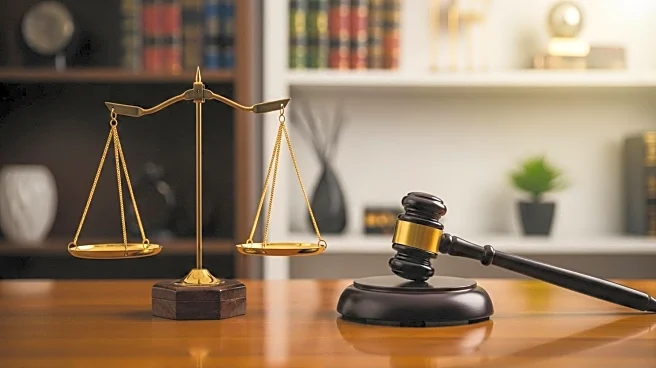What's Happening?
Israel's Attorney General Galia Baharv-Miara has informed National Security Minister Itamar Ben-Gvir that his proposed policy to restrict protests lacks legal standing. The policy aims to prevent protesters from blocking key roads, potentially affecting large anti-government demonstrations in Tel Aviv. Baharv-Miara emphasized that the policy document should not be published without proper consultation with the police commissioner and the Attorney General's Office, as it would violate agreements made during High Court petitions against Ben-Gvir's appointment. Ben-Gvir insists the document is binding and has given the Attorney General an additional 24 hours to respond.
Why It's Important?
This development highlights the ongoing tension between Israel's government and its legal institutions regarding civil liberties and the right to protest. The Attorney General's stance underscores the importance of maintaining legal processes and protecting democratic rights. The outcome of this dispute could have significant implications for public policy and civil rights in Israel, potentially affecting how protests are managed and the balance of power between government officials and legal authorities.
What's Next?
The situation may lead to further legal challenges and public debate over the balance between security measures and civil liberties. If Ben-Gvir proceeds with implementing the policy without legal backing, it could result in court interventions or public protests. The Attorney General's Office and the police commissioner are expected to continue discussions to find a resolution that respects legal standards and public rights.









